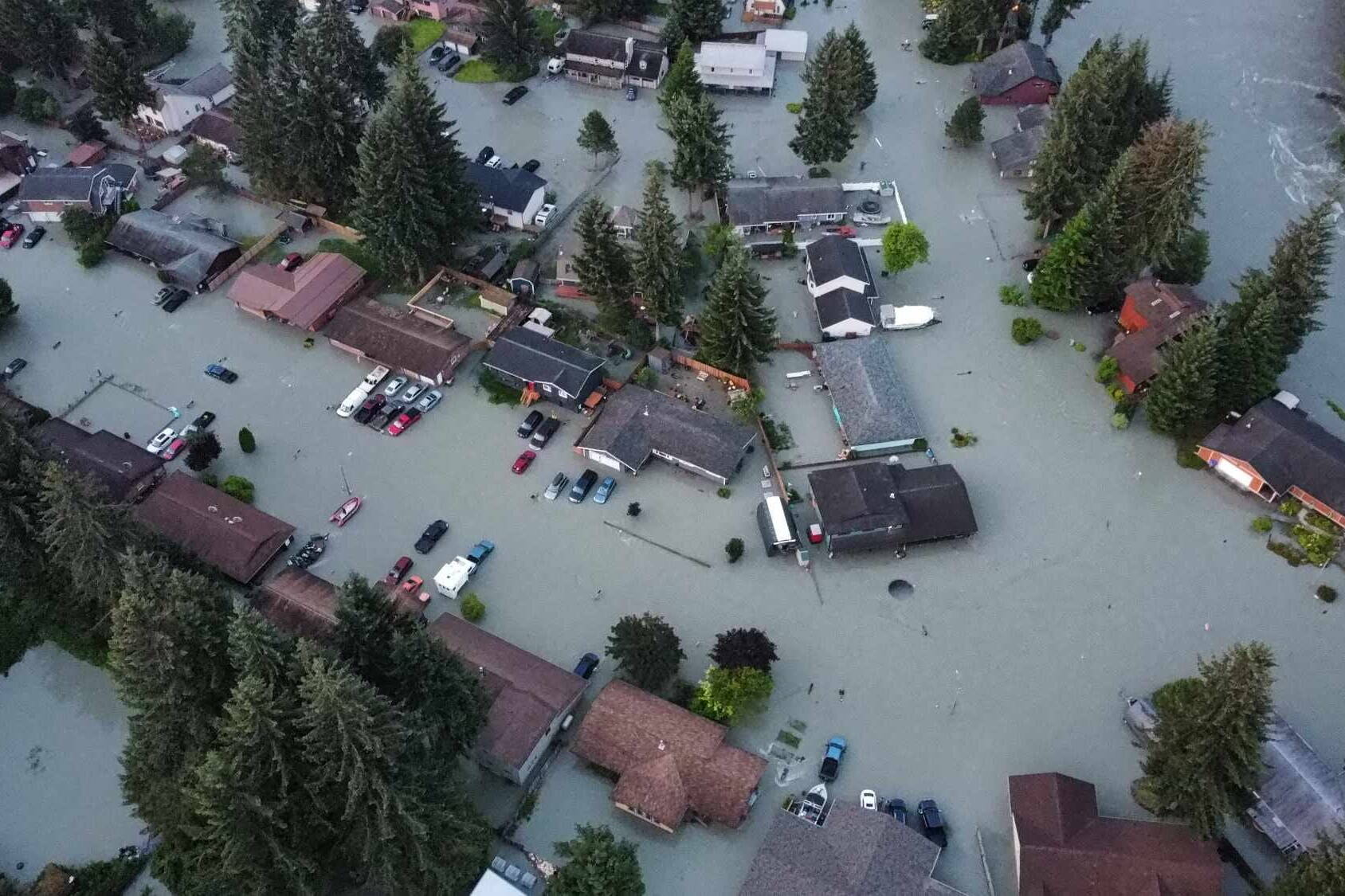Last week’s sudden catastrophic flooding of the Mendenhall River is one of the worst disasters in Juneau’s history. The 1917 Treadwell Mine cave-in and the 1936 landslide that killed 15 people may rank higher in terms of loss of life or economic damage. But this flood damaged nearly 300 homes and hundreds of vehicles. The economic losses will top tens of millions of dollars.
Fortunately, there were no serious injuries or loss of life. The cleanup and re-building will take many months, and stretch the financial resources of the city and all those impacted by the flood. The personal emotional toll on affected families is incalculable.
Individuals can help in many ways. Volunteer opportunities are available and donations to help flood victims can be made to a variety of organizations from churches and the Salvation Army to the United Way.
Disaster relief aid from all levels of government will be forthcoming and welcome. But the crucial challenge facing Juneau is how to prevent this from happening again. The answer to that is complicated and undoubtedly very expensive.
Retreating glaciers can create unstable lakes filled by meltwater and rain that are dammed by ice or sediment. When those dams eventually break, they can send huge walls of water crashing down populated valleys and rivers. Called a glacial outburst flood or jökulhlaup, it is a phenomenon also seen in other parts of the world. The Mendenhall Glacier has created such a lake, now named Suicide Basin, and hydrologists estimated it contained around 14 billion gallons of water before it burst.
Jökulhlaups have occurred in Juneau since 2011 but none as severe as this year. Eventually, the glacier will recede, and Suicide Basin will no longer fill with water. However, other potential basins behind it could create a similar hazard.
The consequences of this catastrophe are far-reaching, well beyond immediate cleanup and reconstruction efforts.
This is where government must step in. Federal, state and local.
One of government’s core responsibilities is to ensure that basic infrastructure and public safety are maintained so that individuals can earn a living and provide shelter and economic security for themselves and their families.
Juneau cannot survive, let alone prosper, with the threat of annual floods on the scale experienced last week. While it is impossible for experts to predict the magnitude of the next such natural disaster, it could be even more devastating.
The solution points towards a flood mitigation project that would divert or contain potential flood water, preventing it from overflowing into residential areas. Sen. Dan Sullivan, who visited Juneau last Thursday to survey the flood damage, has already made initial contact with the U.S. Army Corps of Engineers seeking their help.
Something of this scope requires complex engineering and several years to design, permit and construct. Therefore, short-term/intermediate steps must also be considered to limit potential future flooding.
Assisting individual property owners navigate the bureaucracy and financial burden of rehabilitating properties will fall to various levels of government, including our own. Unfortunately, many of the homes were not located in a designated floodplain and were largely uninsured for flood damage,
The value and marketability of hundreds of homes and some businesses in the Mendenhall Valley, even those that may have escaped damage, is now questionable. After city property tax assessments are adjusted for that, it will put a dent in municipal revenues.
The possible loss of housing stock will put more pressure on housing availability and cost. Will the city respond by cutting red tape and expediting the necessary permits for contractors and builders?
It is imperative that elected leaders conserve revenues and minimize discretionary and unnecessary expenditures. That is the only way that taxes will remain manageable, particularly for impacted homeowners, and allow our financial resources to be devoted to core services and projects that matter.
This disaster should not be an excuse to raise taxes. Projects that the voters have rejected should be put on hold. Significant funds amassed for them could be used to mitigate budget issues until the full extent of the city’s financial obligations are known.
The future may appear daunting, but with financially responsible leadership focusing on protecting lives, property, and the welfare of its citizens, our community can endure.
• After retiring as the senior vice president in charge of business banking for KeyBank in Alaska, Win Gruening became a regular Opinion Page columnist for the Juneau Empire. He was born and raised in Juneau and graduated from the U.S. Air Force Academy in 1970. He is involved in various local and statewide organizations. Columns, My Turns and Letters to the Editor represent the view of the author, not the view of the Juneau Empire. Have something to say? Here’s how to submit a My Turn or letter.

